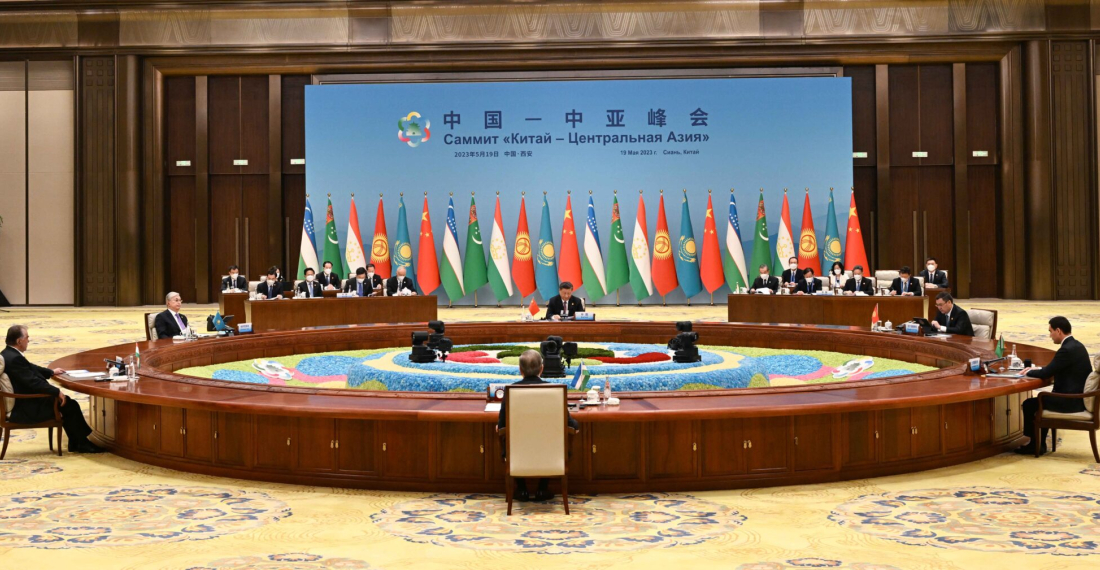Leaders of China and Central Asian countries on Friday (19 May) signed and released the Xian Declaration following the first China-Central Asia Summit. The Declaration hailed the cooperation between the two sides as all-round and productive, stressing that the six countries agreed to build a closer community with a shared future between China and Central Asian countries.
The Declaration said a mechanism for meetings among the heads of state of China and Central Asian countries has been officially established, with the two sides – China and Central Asian countries – taking turns to host the biennial summit. The next summit will be held in Kazakhstan in 2025.
In the Xian Declaration the six countries spoke highly of the Belt and Road Initiative (BRI) and agreed to coordinate their respective development strategies with the BRI, according to the Declaration. They agreed to increase trade, boost connectivity of railways and roads, and increase flights, it added. The six countries also vowed to speed up the construction of the cross-border railway that connects China, Kyrgyzstan and Uzbekistan.
The Xian Declaration said signatory countries will explore the potential for further agricultural cooperation, and China has agreed to increase imports of agricultural products from Central Asia. China and the five Central Asian countries also agreed to boost cooperation in areas such as fossil fuels, renewable energy, education, science, tourism and healthcare, the Declaration added.
During the summit Chinese President Xi Jinping unveiled a grand plan for Central Asia's development, from building infrastructure to boosting trade. In an initiative that appeared to challenge head on Russia’s traditional hegemonic role in the region the Chinese leader said his country was ready to coordinate development strategies with Kazakhstan, Kyrgyzstan, Tajikistan, Turkmenistan and Uzbekistan, and promote the modernisation of all.
"This summit has added new impetus to the development and revitalisation of the six counties, and injected strong positive energy into regional peace and stability," Xi said later at a press conference with his Central Asian counterparts.
"We will jointly foster a new paradigm of deeply complementary and high-level win-win cooperation." Xi said China and the Central Asian countries should deepen trust and offer "clear and strong support" on core interests such as sovereignty, independence, national dignity and long-term development. "China is ready to help Central Asian countries improve their law enforcement, security, and defence capability construction," he said.
China would also upgrade bilateral investment agreements and increase cross-border freight volume with the region, Xi said. It will encourage Chinese-funded businesses in Central Asia to create more jobs, build warehouses, and launch a special train service aimed at promoting tourism, he added.
"To bolster our cooperation and Central Asian development, China will provide Central Asian countries with a total of 26 billion yuan ($3.8 billion) of financing support and grants," Xi said.
Two-way trade between China and Central Asia hit a record $70 billion last year, with Kazakhstan leading with $31 billion, as China seeks deeper links in its quest for greater food and energy security.
Xi said the building of Line D of the China-Central Asia natural gas pipeline should be accelerated. He also called on China and Central Asia to increase their oil and gas trade, develop energy cooperation across industrial chains, and boost cooperation on new energy and the peaceful use of nuclear energy.
In what appears to be a concession to Central Asian states who are keen to diversify their export routes, Xi said that "in the longer term", China supports construction of a cross-Caspian Sea international transport corridor, and would strengthen the construction of transport hubs of China-Europe freight train services.
source: commonspace.eu with Reuters (London) CGTN (Beijing) Astana Times (Astana) and agencies
photo: Leaders of China and the five Central Asian republics at their meeting in Xian







